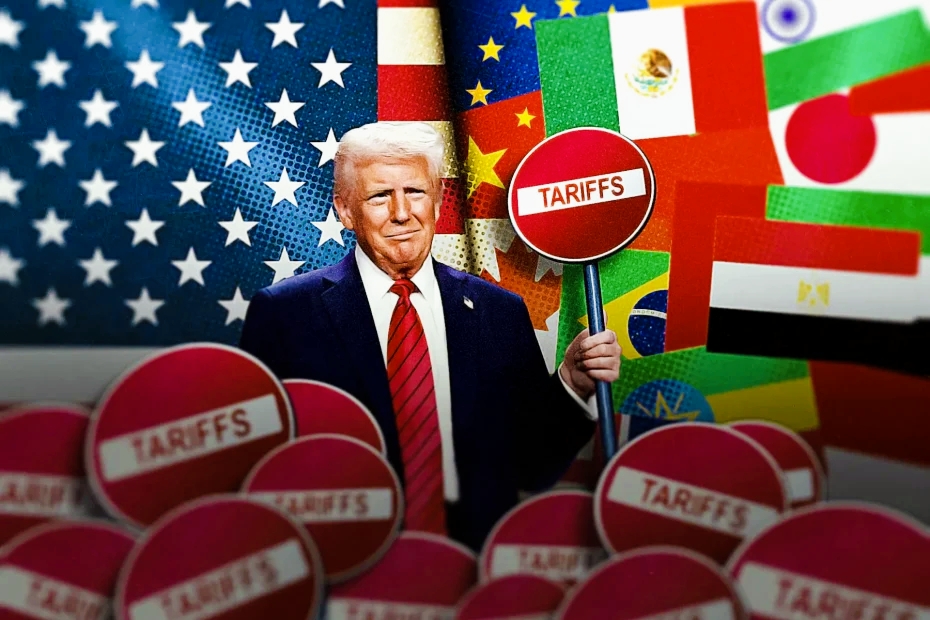In an escalation move within US trade policy, US President Donald Trump announced yesterday, Tuesday, July 8, that he will not extend the deadline for the start of imposing new tariffs on dozens of countries, scheduled to take effect on August 1.
This announcement came a day after hinting at the possibility of flexibility in the final date, creating a state of anticipation in economic circles.
Trump confirmed through a post on his platform "Truth Social" that the deadline for implementing tariffs is fixed and will not change, indicating that the United States will actually start collecting these tariffs on imports from multiple countries starting next month.
Among the new measures, Trump announced imposing a 25% tariff on imports from Japan, South Korea, and Tunisia, in addition to imposing a 30% tariff on South Africa, as well as revealing similar tariffs that will be applied to imports from 11 other countries not detailed.
He also explained that an additional 10% tax will be imposed "very soon" on BRICS countries, which include Brazil, Russia, India, China, and South Africa.
In previous statements on Monday evening, Trump indicated that August 1 is not a 100% final date, explaining that he is open to negotiation if the countries concerned offer different proposals or show flexible positions.
However, he returned on Tuesday to confirm that what has been sent in official messages to some countries is "almost final offers", leaving a slight margin for negotiation if convincing offers emerge.
The White House issued an executive order stipulating that "reciprocal" tariffs will take effect after midnight on August 1.
The decision was based on additional recommendations from senior US officials, especially in light of developments related to trade negotiations.
It is worth mentioning that this step comes after a temporary suspension of tariffs, which was announced on April 2 under what was known as the "Trade Liberation Day", causing widespread disruptions in financial markets.
This suspension remained in effect until July 9, allowing some temporary stability in the markets.
So far, only three new trade agreements have been concluded with the United Kingdom, China, and Vietnam.
Trump also indicated that the United States is close to reaching a trade agreement with India, which is considered an important development amid increasing tensions with countries under the BRICS umbrella.

